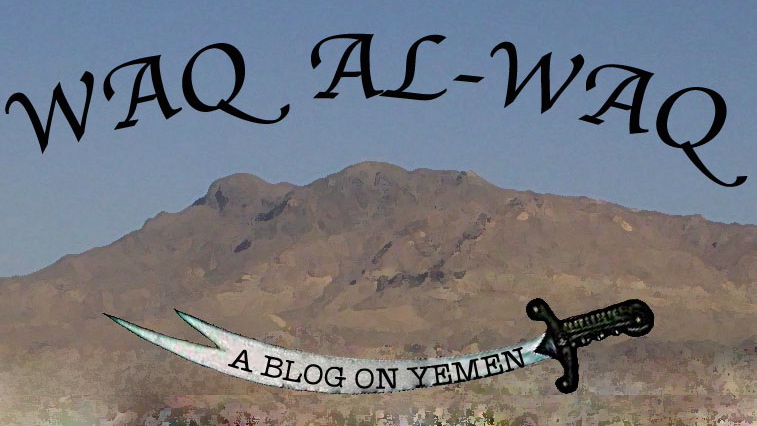Viewpoints on the South
I had meant to post on this fascinating new report from the Middle East Institue on Friday when it showed up in my in-box, but events over the weekend prevented that. But having now read the 13-page report (you have to click on the link for the PDF) I can recommend it to those of you looking for a bit more background on the problems in the south.
It includes commentary from Lisa Wedeen, April Longley Alley, Abdul Ghani al-Iryani, Sheila Carapico, Stephen Day, and Sarah Phillips – all of whom are very intelligent observers of Yemen.
I know all the contributors and while we don’t always agree on all things Yemeni, I can say that their opinions are important even (maybe particularly) when they differ from my own. Beyond that, their opinions are also well-researched and often quite articulate. Many viewers of this blog should read them as a potential antidote against my own biases.
I would particularly recommend Stephen Day’s article, which I thought was very good – although I think the Arabic in the NY Times interview he alludes to was mistranslated a bit – I believe the original Arabic of the proverb, at least as found in Isma’il al-‘Akwa’s collection, is: dancing on the heads of snakes not dancing with snakes. But that doesn’t make his snake charmer bit any less apt.
The opening paragraph of Sarah Phillips’ article as well as the following paragraph also deserve special praise:
“The two critiques – one jihadi and the other secessionist – are thus merging under the broad complaint that the regime is ruling unjustly. As the money that fuels the Yemeni patronage system runs out, the rules of engagement that have been operational since unification are rupturing and previously unlikely short-term alliances are becoming more likely.”
I disagreed with the portrayal of al-Qaeda in the Alley/al-Iryani article, but that is old news to readers of this blog.
My other, larger complaint is that all the contributors are political scientists (surely, not a crime) and as such tend to talk about Yemen through the prism of political parties, which I don’t believe is always the best way to understand the place. But this may be the knee-jerk reaction of an historian.


